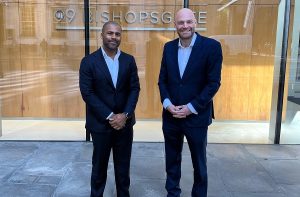Turnover up as restructuring and insolvency practice plots growth course

Opus Restructuring & Insolvency, the restructuring and insolvency firm, is marking a significant milestone at its Nottingham office with a 46% rise in turnover.
Established in 2021 by Louise Williams, the Nottingham branch has grown from a single-person operation during the OVID restrictions to a team of seven professionals.
The Nottingham office has expanded its client base and now manages multiple administrations, liquidations, and other complex cases, including property receiverships and creditor agreements.
Louise Williams, partner, said: “We attribute our success to sticking to the basics of any professional practice. Being available, responding promptly, and providing practical, straightforward advice has helped us build trust with clients navigating financial challenges. Engaging an insolvency practitioner can often come with negative connotations but we strive to offer early advice that will result in the best outcomes.”
“No insolvency practitioner has a magic wand,” added Louise. “But we provide directors with the least-worst options, empowering them to make informed choices. If we can save a business, save jobs and set them on a more positive trajectory, then that’s the best outcome for all.”
A recent case demonstrates the team’s expertise and practical approach. A Nottingham company facing unsustainable debt and pressure from its lender turned to Opus for help. The team orchestrated a marketing campaign to find a buyer, culminating in a seamless sale that safeguarded jobs and ensured all debts were collected in full. This resulted in distributions to secured and preferential creditors, highlighting Opus’ ability to create positive outcomes even in tough situations.
Looking ahead, Williams says she sees challenges for local businesses, particularly in the care and hospitality sectors, as National Insurance rises in April loom.
“These increases will disproportionately affect businesses where wages are a high proportion of total costs,” she said. “Early intervention is critical for businesses facing financial difficulties. The sooner directors seek advice, the better the outcome for all stakeholders.”









